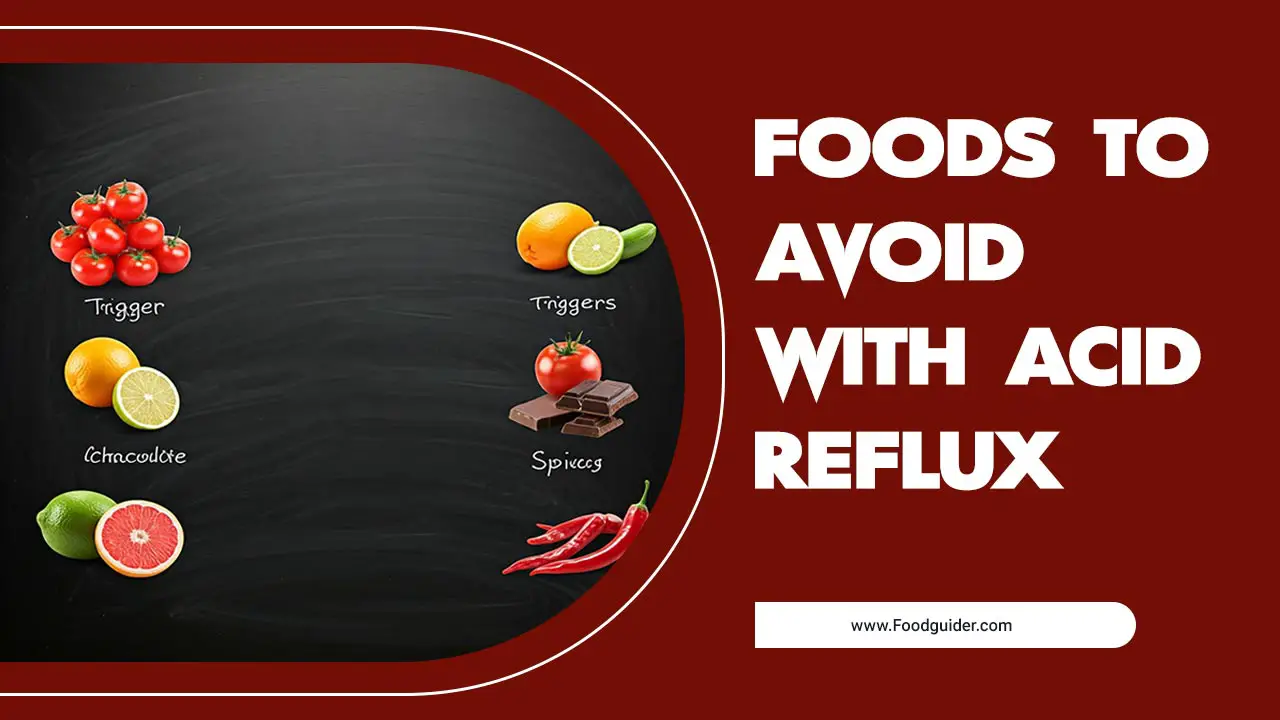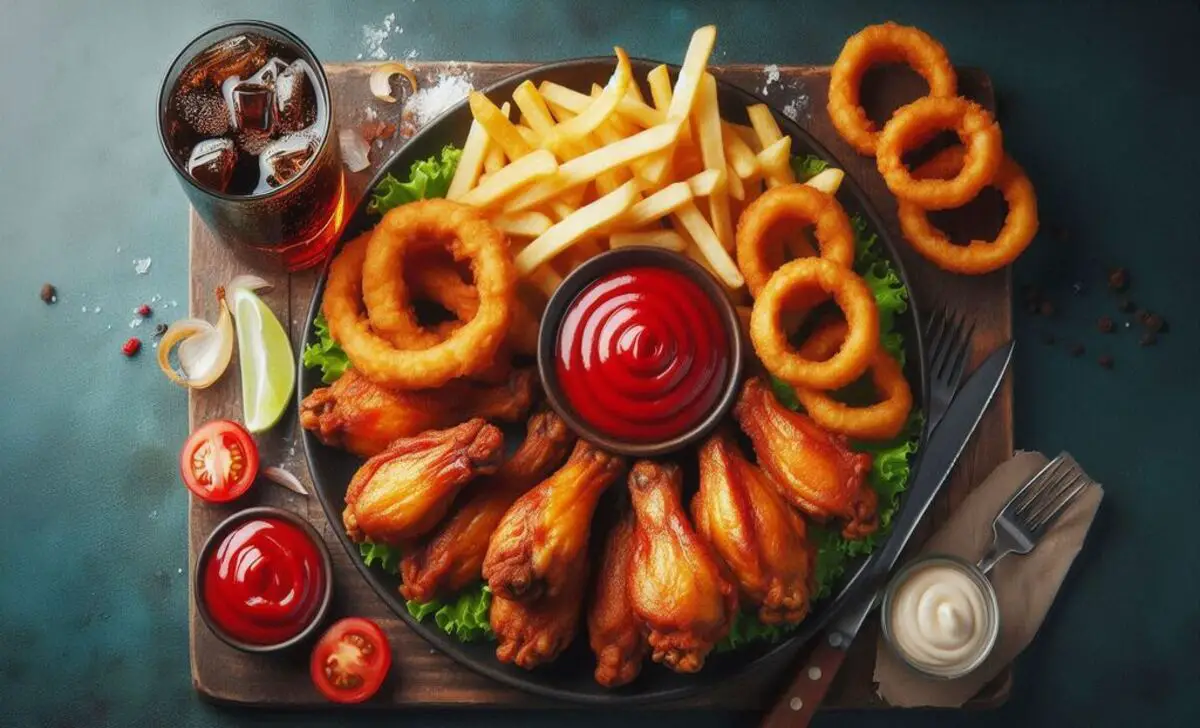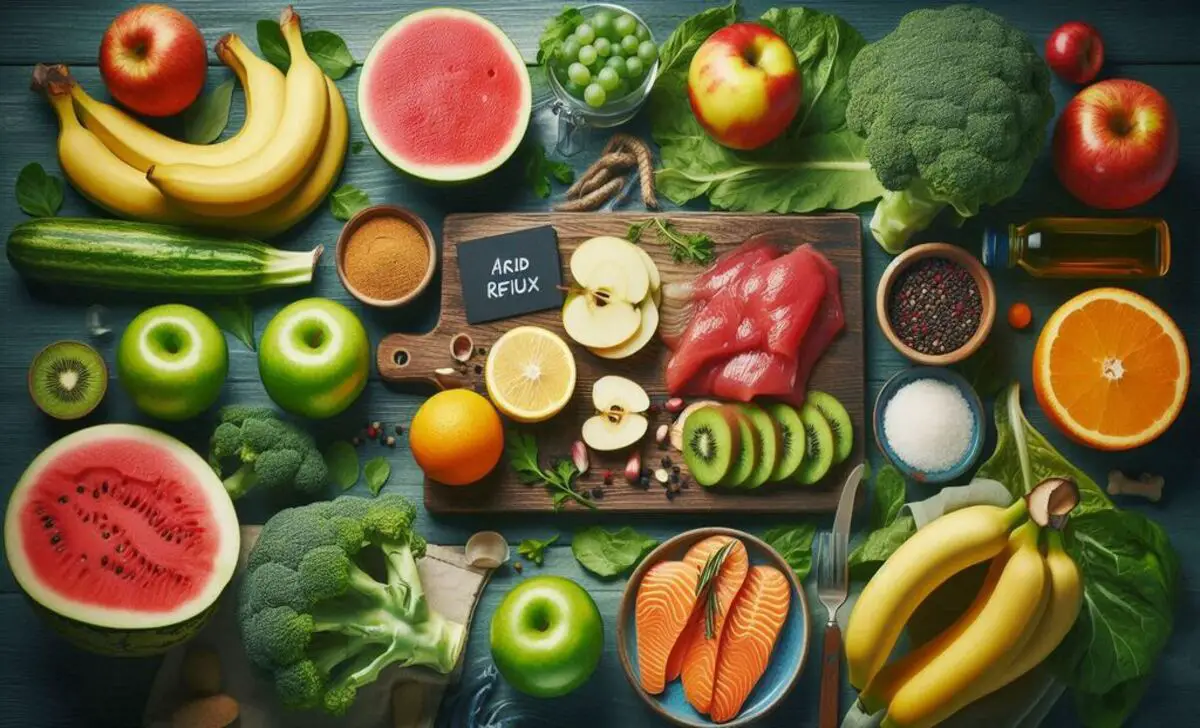If you experience acid reflux or gastroesophageal reflux disease (GERD), the foods you eat can significantly impact your symptoms.
Acid reflux, also known as heartburn, occurs when stomach acid moves into the esophagus, leading to a burning sensation in the chest and throat. While occasional acid reflux is common, chronic acid reflux may require diet adjustments to manage symptoms. Here, we’ll explore foods that can worsen reflux symptoms and the importance of a GERD-friendly diet.

Foods To Avoid With Acid Reflux
Acid reflux is a digestive condition where gastric acid from the stomach flows back into the esophagus. This can lead to symptoms like heartburn, a bitter taste in the mouth, and discomfort. Chronic acid reflux, or gastroesophageal reflux disease (GERD), is a more severe form of reflux disease that requires ongoing management. Diet plays a key role in controlling GERD, and avoiding certain foods can help reduce symptoms.

Here’s a breakdown of the worst foods that can trigger or worsen acid reflux symptoms:
1. Spicy Foods
Spicy foods can irritate the esophagus and increase stomach acid production, leading to a burning sensation. They’re known to trigger heartburn symptoms in many people, especially those prone to reflux.
2. Fried And Fatty Foods

Fried foods like french fries and high-fat foods slow down digestion, causing stomach contents to linger longer and increasing the likelihood of acid reflux. Additionally, foods high in saturated fat, like fatty meats, can weaken the lower esophageal sphincter (LES), allowing stomach acid to escape more easily.
3. Acidic Foods
Foods high in citric acid, such as tomatoes, oranges, and lemons, can increase stomach acid production. Acidic foods are notorious for causing reflux symptoms, as they can irritate the esophagus and cause discomfort.
4. Carbonated And Caffeinated Beverages

Carbonated drinks, like soda, and caffeinated beverages, such as coffee, can lead to gas buildup in the stomach, increasing pressure on the LES. This pressure can cause acid to back up into the esophagus, making these drinks some of the worst choices for people with acid reflux.
5. High-Fat Dairy Products
Dairy products like ice cream, whole milk, and certain cheeses are high in fat, which can delay stomach emptying and increase acid reflux symptoms. Choosing lower-fat alternatives may help reduce reflux flare-ups.
6. Chocolate

Chocolate contains caffeine and theobromine, both of which can relax the LES and lead to acid reflux. Additionally, the high fat content in chocolate can exacerbate symptoms.
7. Certain Processed Foods
Foods like cookies, pastries, and snack foods are often high in fat and may contain trigger ingredients for reflux sufferers. These foods can disrupt digestive health and contribute to acid reflux symptoms.
Foods That May Help Manage Acid Reflux

Adopting a GERD-friendly diet is essential for managing acid reflux disease. Here are some food options that are generally safe:
- Non-Citrus Fruits: Apples, bananas, and melons are low in acidity and less likely to cause reflux.
- Vegetables: Leafy greens, broccoli, and carrots are low-acid options that support digestive health.
- Lean Proteins: Choose lean meats, fish, and poultry, which are less likely to cause acid reflux.
- Healthy Fats: Replace saturated fats with unsaturated fats, such as those found in olive oil and nuts.
Tips For Managing Acid Reflux With Diet
- Eat Smaller Meals
Large meals increase stomach pressure and make acid reflux symptoms worse. Try eating smaller, more frequent meals to aid digestion and prevent reflux. - Avoid Eating Before Bed
Eating right before lying down can increase the risk of acid reflux, as it allows stomach acid to move toward the esophagus. Try to avoid eating within two hours of bedtime. - Stay Hydrated with Non-Carbonated, Non-Caffeinated Beverages
Choose water or herbal tea instead of carbonated beverages to avoid putting pressure on the LES. - Chew Food Thoroughly
Chewing your food well helps break down food particles, making digestion easier on your stomach and reducing the risk of reflux. - Monitor Your Triggers
Certain foods trigger acid reflux symptoms in some people but not others. Keeping a food diary can help you identify and avoid your personal trigger foods.
Conclusion
Acid reflux and GERD symptoms can be challenging, but dietary changes can make a substantial difference in managing these conditions. Avoiding high-fat foods, spicy dishes, acidic items, carbonated drinks, and chocolate can help reduce acid reflux symptoms and improve digestive health. Remember, a personalized approach that includes healthier eating habits, regular smaller meals, and lifestyle changes can be highly effective for managing chronic acid reflux.
FAQs
1.What Are The Symptoms Of Acid Reflux?
Acid reflux symptoms include heartburn, regurgitation, chest discomfort, and a bitter taste in the mouth.
2.Can Occasional Acid Reflux Be Managed Without Medication?
Yes, occasional acid reflux can often be managed through dietary changes, like avoiding trigger foods and eating smaller meals.
3.Why Does Fatty Food Trigger Acid Reflux?
Fatty foods delay stomach emptying and relax the lower esophageal sphincter, making acid reflux more likely.
4.Is Chocolate Bad For Acid Reflux?
Yes, chocolate contains caffeine and fat, both of which can trigger acid reflux symptoms in many people.
5.Can Acid Reflux Be Prevented By Eating Healthier Fats?
Switching to healthy fats, like those in olive oil and nuts, can help reduce acid reflux symptoms as these fats are less likely to irritate the stomach lining. Incorporating an acid reflux diet into your daily routine can go a long way in managing symptoms and improving digestive health. With the right dietary changes, you can alleviate discomfort and enjoy better overall health.